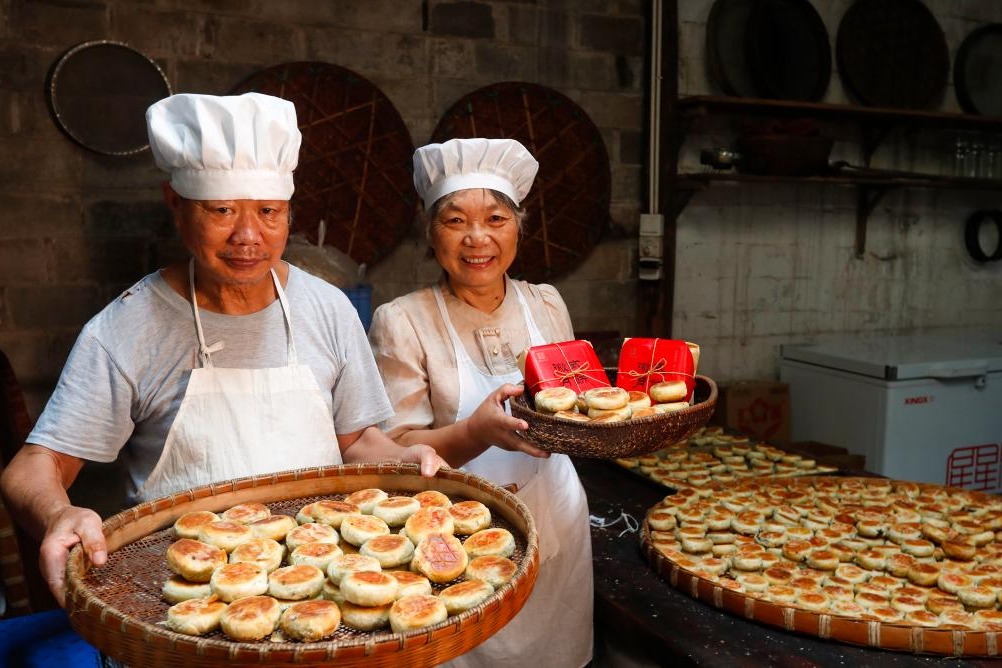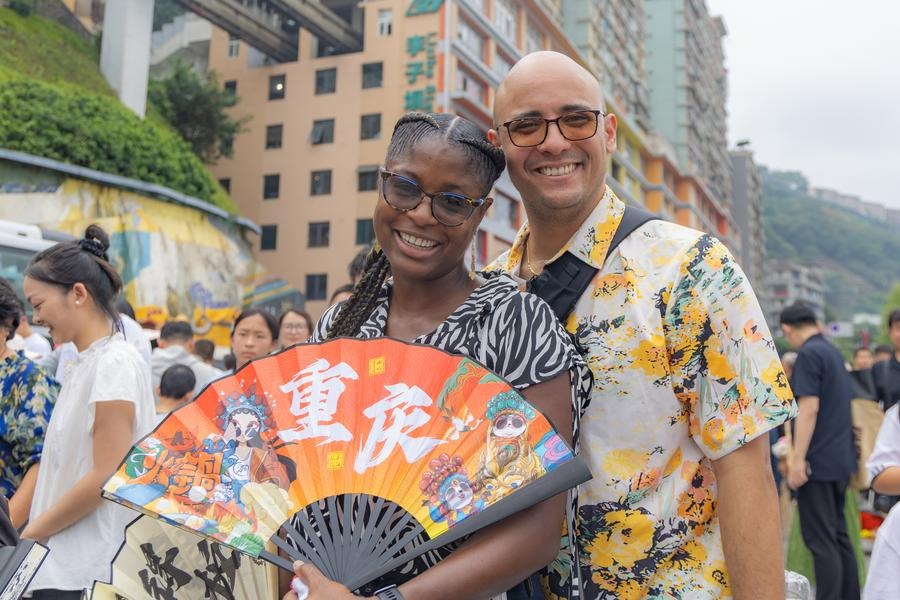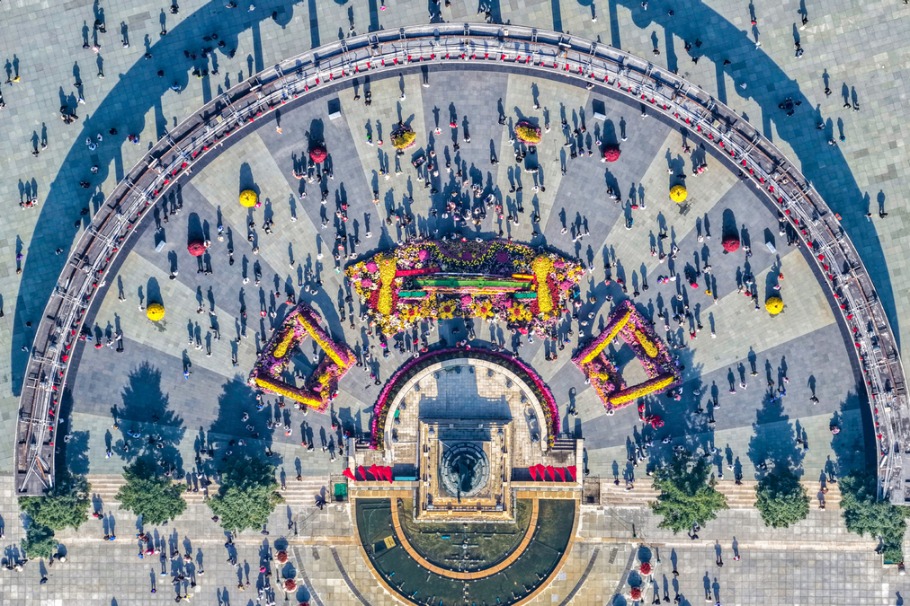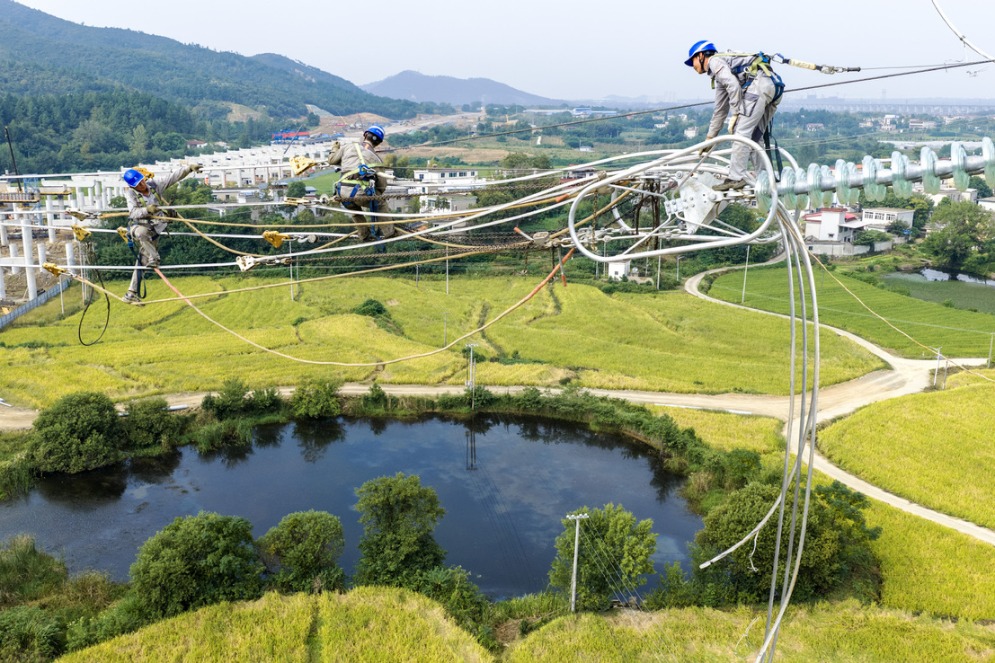Xi Jinping and China's new era

President Xi Jinping took his place on Tian'anmen Rostrum on Tuesday at a grand celebration marking the 70th anniversary of the founding of the People's Republic of China.

It was there on Oct 1, 1949, that Mao Zedong announced the birth of New China. Over the past seven decades, the socialist country has blazed an extraordinary trail, rising from a "poor and blank" state to a major country on the world stage.
Xi, the first top Chinese leader born after 1949, is at the helm in a new era, steering the country through wind and waves to a brighter future.
Into new era
Xi was elected general secretary of the Communist Party of China Central Committee on Nov 15, 2012.
The world at that time was transforming. The impact of the 2008 global financial crisis still lingered. Emerging economies were rising. And China, after overtaking Japan as the world's second-largest economy, had entered a critical period in its modernization.
Two weeks later, Xi proposed the "Chinese Dream" of national rejuvenation.
Soon after assuming the Party's top post, Xi addressed senior cadres with a lecture spanning the history of world socialism over the previous 500 years. He talked of how China had failed in its previous experiment with all other "isms" and directed cadres to unreservedly follow socialism with Chinese characteristics.
The Party's authority was further emphasized in October 2017, with the establishment of Xi Jinping Thought on Socialism with Chinese Characteristics for a New Era.
Xi demanded full and strict governance over the 90 million-member CPC. To this end, he introduced an eight-point decision on how to improve conduct, rolled out stricter Party rules and regulations, and over the past seven years, launched four education campaigns to strengthen the Party.
"Every day, we brush our teeth, wash our faces, clean the house and do the laundry. For Party building, we must do the same," he said.
An unprecedented anti-corruption campaign has left no stone unturned. In the first five years of Xi's leadership, 440 centrally administrated officials-mostly ministerial-level or above-were punished.
"Xi and his colleagues preside over the world's largest and most successful Marxist-Leninist organization, and they are determined to ensure that it remains so," an article in Foreign Affairs magazine said.
In late 2016, Xi's core status in the CPC Central Committee and the whole Party was established. He was re-elected general secretary of the CPC Central Committee in October 2017 and Chinese president in March 2018.
During a visit to Italy this year, asked about how he felt about being Chinese president, Xi told President of the Italian Chamber of Deputies Roberto Fico that governing such a huge country requires a strong sense of responsibility and hard work.
"I am willing to be selfless and devote myself to China's development," Xi said. "I will not let the people down."
- Strong typhoon triggers safety measures in south
- 5 dead after entering abandoned mine in East China
- Andersson seizes victory in Shanghai F1H2O showdown
- Red alert as Typhoon Matmo makes landfall in South China
- New reception hall aims to transform Guangzhou into international trade hub
- Typhoon Matmo to make landfall on Sunday





































